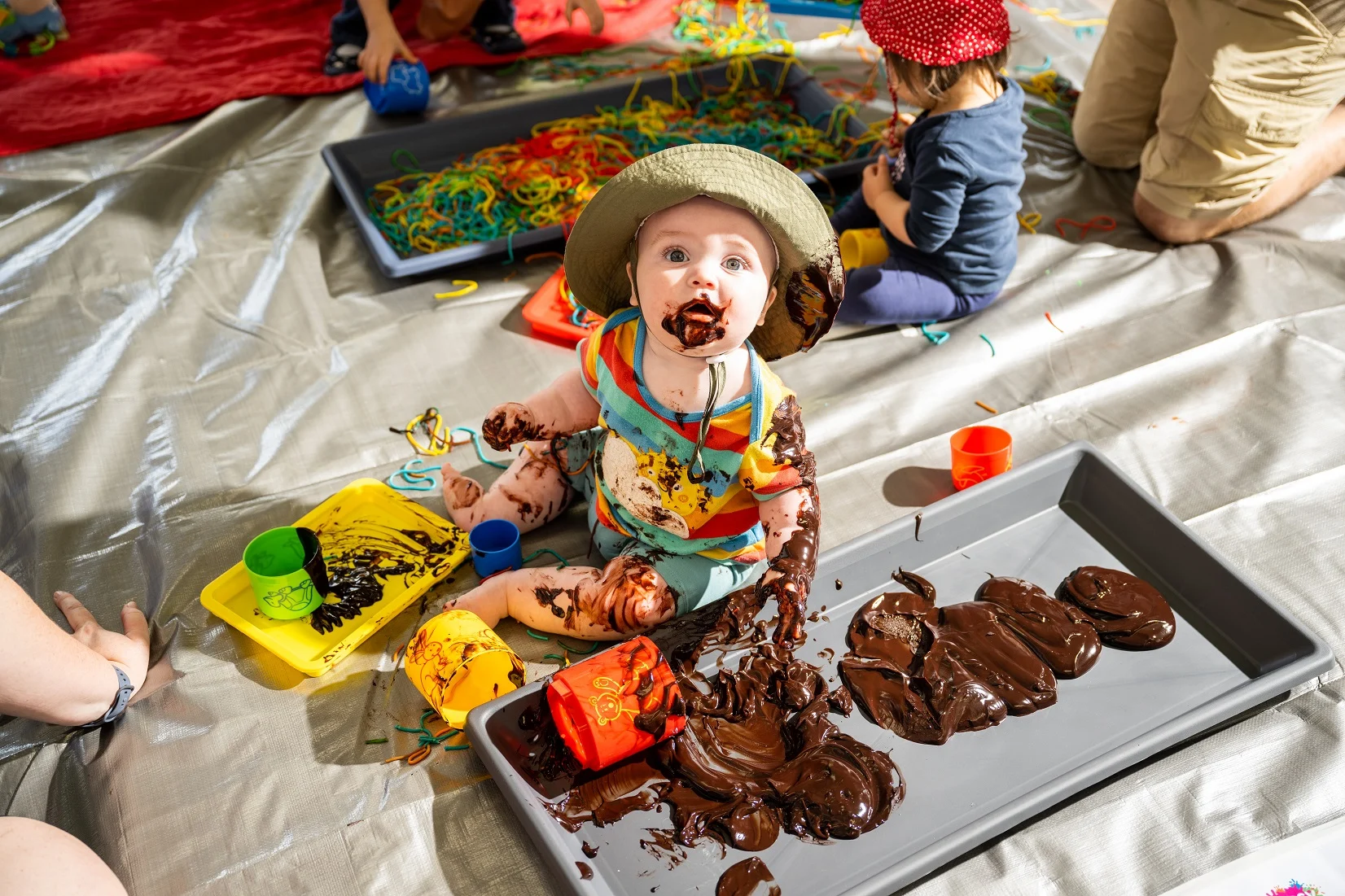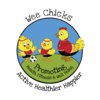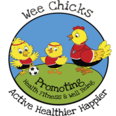
The Importance of Messy Play for Children
The Importance of Messy Play for Children
Many parents are put off by the thought of messy play – as although the idea of finger painting or crafts sounds fun at first, the reality of paint, glue and glitter getting everywhere and the inevitable operation clean up that follows it soon sets in. However, many studies have shown that messy play is one of the best ways for our children to learn and develop.
Here at Wee Chicks, we encourage our children to engage in messy and sensory play as much as possible as there are many benefits for the children.
- Quote from Kelly.
Squelch… Squish… Splat…
“Kids just love getting mucky and making a mess – whether that’s squishing jelly through their hands, smearing mud across their faces or crunching rice krispies between their fingers!”
- Early Years Resources, 2018.
Messy play is extremely important for a child’s development. It provides children with an exciting tactile and sensory experience that inspires their curiosity, allows them to explore the world around them and enhances their learning, language and creativity.
“Not only does messy play enhance a child’s cognitive development and learning, but it also improves a child’s physical development as well!”
- Early Years Resources, 2018.
Benefits of Messy Play
-
Encourages curiosity, imagination and exploration:
Messy play is all about letting children explore and experiment with different objects and materials without any end goals or restrictions – they can do whatever they want, whatever their little imagination desires!
Using raw materials such as sand, water, chalk, paint, pasta, play dough etc., this allows children’s imaginations to run wild and spend time exploring, making their own discoveries, imagining different situations, stimulating their curiosity and development as well as understanding their senses and surroundings.
- Encourages communication and language development:
Messy play will enrich relationships through social interaction. As young children can’t explain things verbally, it allows them to share their discoveries in different ways through the use of objects and gestures and in order to do this, they need to think through their actions so they can communicate this explanation which also helps develop their cognition.
“Depending on what you make of the messy play activity, you can also use it to develop language skills and encourage speech. For example, using the letters in the activity helps develop an understanding of the written language, by describing sensations and textures to your children you can help them build their vocabulary, and by talking through what you’re doing and asking open-ended questions such as “I wonder what happens when I do this?” you are providing speaking and listening opportunities and encouraging thinking skills.”
- School Hose, 2018
- Supports children’s ability to play independently:
As well as encouraging children to interact with other people through messy play, it can also help support independent play. In today’s society, children are losing the ability to be able to amuse themselves. Messy play allows them to make their own entertainment, in an unrestricted play environment – they can play however they want to; “by using their own mind to plan, explore and problem-solve, they are building a self-confidence and self-esteem that will develop them as independent people” (School House, 2018).
- Promotes Physical Development:
As mentioned, “not only does messy play enhance a child’s cognitive development and learning, but it also improves a child’s physical development (Early Years Resources, 2018) by allowing them to develop an awareness of their body, muscle control and their own personal space.
“Activities such as pouring, shoveling or drawing in the sand help build strength in the large muscle groups at the top of the arms and it is these muscles that then enable the smaller muscles in the hands and fingers to make precise and controlled movements. In messy play, children can play with tools to develop and practice their fine motor skills as well as their hand-eye coordination, until soon they can hold a pen or eat with a fork!”
- School House, 2018.
In other words, experimenting with messy play can enhance children’s hand-eye coordination.
References
http://www.earlyyearsresources.co.uk/blog/2018/06/messy-play-physical-benefits/
https://schoolhouse-daycare.co.uk/news/why-messy-play-benefits-children/

